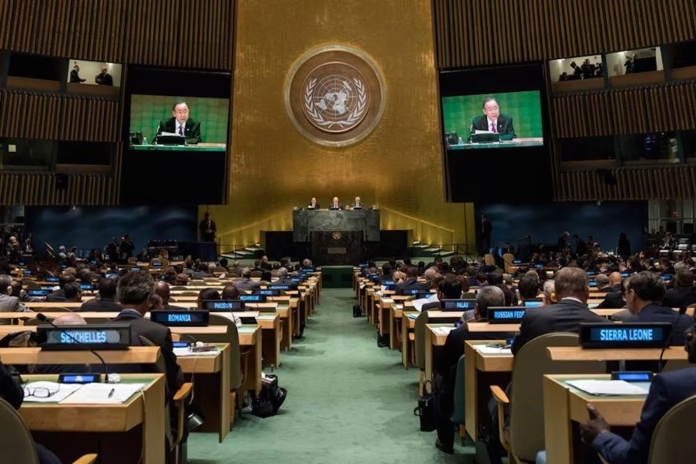GENEVA — United Nations experts on Monday commended Burundi for recent efforts to combat discrimination but pressed the government to explain persistent concerns over ethnic quotas, the independence of national institutions and the treatment of Congolese refugees at the country’s borders.
The Committee on the Elimination of Racial Discrimination concluded its review of Burundi’s combined 11th to 19th periodic reports, marking the country’s first appearance before the body in two decades.
Mazalo Tebie, the Committee’s country rapporteur, acknowledged progress since Burundi’s last review. She said the Committee “understood that Burundi was making great efforts to entrench peace and eliminate all forms of discrimination in the country,” and commended the improvement. But she noted that the Committee still needed to assess “the effective implementation” of the Convention against racial discrimination.
Experts questioned whether ethnic power-sharing quotas negotiated in the 2000 Arusha Accords were being maintained. One expert noted that the Constitution mandates 50 percent Hutu and 50 percent Tutsi representation in some sectors, despite the Hutu population representing roughly 80 percent of citizens. “What mechanisms had been established to ensure the effectiveness of the quota system?” the expert asked.
Tebie said Burundi’s censuses did not include data on ethnic composition, making it difficult to track inequalities affecting minority groups such as the Batwa. The Committee asked why the State had not collected such information and what measures were planned to close the data gap.
Burundi also faced scrutiny over its handling of Congolese refugees, who have arrived in large numbers amid escalating conflict in eastern Democratic Republic of the Congo. Tebie cited “worrying practices, such as pushbacks, border blockades in Cibitoke and Bujumbura provinces, as well as targeted arrests and perceived arbitrary checks, sometimes based on ethnic or linguistic criteria.”
The Committee asked what steps had been taken to prevent refoulement, ensure fair identification procedures, and guarantee access to health care, education and documentation for refugees and stateless persons.
Burundi’s delegation rejected claims of discriminatory practices and insisted that security measures were necessary given regional instability. The State “hosted the largest number of Congolese refugees, and under good conditions,” the delegation said, noting that more than 108,000 Congolese nationals were living in Burundi. Identity checks at the border were “the bare minimum to ensure that rebel groups were not entering the country,” the delegation added.
Foreign Minister Edouard Bizimana led the delegation and introduced the report, explaining that the submission compiled nine overdue reports delayed by decades of political and socio-economic upheaval. He said Burundi had “learnt lessons” from its history of ethnic conflict and described reforms aimed at promoting inclusivity.
With the adoption of the 2018 Constitution, Bizimana said, the State was ensuring participation “of all citizens in the decision-making sphere without discrimination on grounds of ethnicity or gender.” He highlighted representation of the Batwa, including three members of parliament and three senators.
Responding to concerns about the independence of national institutions, the government said internal disputes had caused “paralysis” within the National Human Rights Commission and prompted early replacement of commissioners. It said the Commission’s budget had increased and its work remained independent.
Committee members also raised concerns about hate speech, racial profiling, press freedom, the situation of persons with albinism, and land restitution for displaced communities.
As the dialogue closed, Tebie thanked Burundi for its “active participation,” saying the exchange would help identify next steps. Bizimana welcomed the Committee’s guidance, saying Burundi “stood ready to support the efforts of the Committee” and wished to “move forward in the right direction.”
The Committee is expected to issue its concluding observations on Dec. 5 at the end of its 106th session



